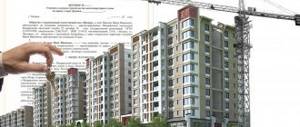Selling an apartment is a rather labor-intensive process, including assessing the cost of the apartment and other issues. The speed of selling real estate often depends on the seller himself - his knowledge of the law and the speed of decision-making. And if we are talking about an apartment with an encumbrance, then its sale raises a lot of difficulties, which can sometimes be resolved only by selling the home to a real estate agency.
The purchase of encumbered apartments by an agency such as “Redemption-52” is a guarantee of quick receipt of funds for problematic living space. If you need advice and more information about the intricacies of the transaction, do not leave the site - we will tell you everything in detail.
What does it mean - an apartment with an encumbrance?
Encumbrance is a restriction on the performance of certain actions imposed on housing that arose on the basis of law or contract. Some restrictions arise at the will of the owner himself (pledge), while others do not depend on him in any way (seizure).
Article 209 of the Civil Code of the Russian Federation explains that the right of ownership means the ability to:
- Own.
- Use it.
- Manage the object.
Most often, it is the last point that is blocked by the restriction—the ability to manage the apartment. The owner has the right to live in it, in some cases to rent it out, but cannot sell, bequeath or donate the object.
According to Federal Law 122 “On State Registration of Rights to Real Estate,” an encumbrance is a condition that constrains the owner in the use or disposal of his property.
In addition, encumbrance implies that, as a result of some situation or transaction, third parties receive certain rights to the object. For example, a bank becomes the mortgagee of an apartment when purchasing it with a mortgage. In such a situation, the owner of the property cannot perform certain actions with it without the approval of the bank.
Types of encumbrances
Current legislation knows several types of encumbrances that are established in relation to an apartment.
Mortgage
Important! The apartment was purchased under a mortgage agreement and is the collateral of the banking institution that issued the loan for its purchase. Until the loan is fully repaid, the homeowner does not have the right to sell it without obtaining the consent of the lender.
If the funds are not returned to the bank, the financial institution sells the property and returns the money that was issued.
In addition, debt obligations of the property owner, entailing the imposition of encumbrances, may arise in the event of:
- construction of housing using loan funds;
- obtaining a loan secured by an apartment;
- transferring an apartment for rent.
What are the encumbrances?
There are 9 types of encumbrance:
- Mortgage.
- Arrest.
- Rent.
- Trust management.
- Easement.
- Rent.
- Guardianship (maternity capital).
- Registration of a minor child.
- Permission of the second spouse.
Let's look at each of them in more detail.
Mortgage
Mortgage, as a type of encumbrance, is the most common. When purchasing a home using a mortgage loan, the apartment is pledged until it is paid in full. You can sell such property at any time, but not every buyer will want to deal with such a process.
Arrest
An arrest occurs in the event of disputes regarding an apartment. It can be imposed by the courts, bailiffs and police. This is one of the most difficult restrictions. It is imposed if it is necessary to attract the owner to fulfill certain obligations: payment of debts on utility bills, loans, alimony, etc.
Rent
Rent is a common encumbrance in Russia. The home owner signs an obligation to transfer ownership of his apartment to another person. In exchange, he demands that he be provided with lifelong care. Nothing can be done with such real estate. The restriction is lifted only after the death of the current owner. From this moment on, the rights to the apartment pass to the person who cared for the owner.
Trust management
Trust management is the transfer of rights to manage real estate to a trustee. This type of encumbrance is rarely used, and only if the owner for some reason cannot personally monitor his property.
Easement
An easement is the right of one person to use the property of another. For example, an apartment is divided between two owners in equal shares, but one of the rooms is a walk-through room. This means that the one to whom it does not belong will still, at a minimum, pass through this room.
Rent
Rent does not interfere with the sale of property. But there is one thing: the new owner will not be able to evict the tenants until the end of the lease agreement. The difficulty is that sometimes such agreements are concluded for a long period, or even indefinitely.
Guardianship and maternity capital
Guardianship is a burden that is placed on an apartment purchased using maternity capital. In this case, not only the parents, but also the children become the owners of the apartment. This means that it is impossible to sell such an apartment without permission from the guardianship authorities.
Registered minors
If a child under the age of 18 is registered in the apartment, this imposes restrictions on actions on such real estate. A child can be discharged only with the consent of the guardianship authorities and both parents.
Consent of the second spouse
If the apartment was purchased during marriage, it is joint property and one spouse will not be able to sell it without the notarized consent of the other.
Types and features of restrictions on housing
An encumbrance is the imposition of certain restrictions and prohibitions on the property rights of the owner of real estate regarding its use and alienation. Without the permission of third parties who have imposed one or two bans on the apartment, it cannot be sold, exchanged, rented or leased. In some cases, registration and redevelopment are prohibited. Sometimes the living space becomes closed to the owners themselves.
Let's consider the types and reasons for their occurrence:
- Mortgage. This is the most common way of purchasing housing in installments, when in exchange for a targeted loan, the buyer transfers the purchased property to the bank as collateral. Restrictions on ownership ends after the debt is repaid and the apartment is registered in Rosreestr.
- Arrest. This preventive measure implies a complete restriction on any measures for the permanent or temporary alienation of living space. The arrest is declared by a court decision at the request of utility services, to which the property owner has a large debt. The arrest is lifted after payment of all bills and fines, based on a document confirming this fact.
- Rent. Without having any rights to the living space, tenants, on the basis of an official contract, can live in the living space until the end of its validity. The buyer cannot require them to leave the premises early. This encumbrance is temporary and is automatically removed upon the date specified in the agreement.
- Rent. When there are two restrictions, mortgage and rent, then purchasing such real estate is very risky, since in addition to the financial factor, there is also a subjective one. All restrictions will have to be removed - one after the death of the annuitant, the second - after repaying the loan.
Several prohibitions may be in effect at the same time when the apartment is mortgaged and third parties are registered in it. It can be very problematic to write them out even through the court.
What risks may arise?
The presence of restrictions on real estate can be a big problem for new owners. To avoid complications, you must carefully check the documents before signing a housing purchase agreement. Of course, there is one significant advantage in purchasing such a distressed apartment - the price is below market value. But does the low price cover the existing risks?
Expert opinion
Alexander Nikolaevich Grigoriev
Mortgage expert with 10 years of experience. He is the head of the mortgage department in a large bank, with more than 500 successfully approved mortgage loans.
An already signed purchase and sale agreement may be terminated, and it will be difficult to return the funds spent. In such situations, you have to go to court, where you need to prove that the deal fell through because of the seller. These are additional costs, time and nerves. Even if the court decides in favor of the new owner, no one can guarantee that the seller will in good faith compensate for the damage suffered by the buyer.
Possible problems and risks
Ignoring the recommendations of experienced lawyers about the need to check for the presence/absence of encumbrances on an apartment even before concluding a transaction leads to unpleasant consequences.
So:
- The new owner faces the question of whether it is necessary to terminate the purchase and sale agreement or declare it invalid. At the same time, the former owner will not voluntarily return all expenses that were incurred during its conclusion. A lawsuit will be required, which may drag on for a long time. In addition, there is no guarantee that the funds spent on the purchase of an apartment will be returned in full and immediately;
- A dilemma will arise: keep the apartment or return it to the former owner. The first option will require repayment of all debts that are listed on the apartment. For example, the former owner still owes on a loan secured by an apartment. These costs will additionally be borne by the buyer;
- The former owner can refuse the transaction. In this situation, the expenses incurred by the buyer will have to be returned through the court. And the process of returning money can take a long time.
How to check if there is an encumbrance on an apartment - 7 ways
There are several ways to find out whether any encumbrance has been imposed on the apartment:
- Online request on the Rosreestr website . To do this, you need to go to the website and find the “Reference information on real estate online” service. Next, fill in the required fields with information about the apartment. The check takes 1-2 minutes. Rosreestr will issue a report with the information it has: full address, full name of the owner, type of property and the presence of restrictions. This is a simple, fast, free, but not very reliable method. Unfortunately, the information here is not updated frequently.
- Extract from the Unified State Register of Real Estate . It can also be ordered online on the Rosreestr website, but it contains more information. Please note that the statement is valid for only 30 days. The future buyer must be prepared to pay a fee for this service. Today it is 250 rubles.
- Extract from other online services . You can check whether there is an encumbrance on the apartment not only on the Rosreestr website, but also in other online sources. The algorithm of actions here is similar to Rosreestr: we go to the website, fill out the form with the address and receive the necessary information.
- Data from the house register or apartment card . There will definitely not be information about mortgages here, but you can find out information about registered minor children.
- Realtor services . This option is suitable for those who do not want to delve into the process of purchasing and decorating an apartment. For money, realtors will find information about restrictions. In this case, they will use exactly the methods that were indicated above.
- Contact the architecture department . Here you can get additional information about whether this apartment is on the list of emergency housing. Purchase and sale transactions with such real estate are prohibited by law.
- Through bailiffs . You can check the presence of encumbrances on the part of bailiffs at the territorial office of the FSSP or on their website. The appeal can be either oral or written.
How are the rights of the owner limited?
The current civil legislation provides that the initiator of establishing an encumbrance on an apartment may be:
- apartment owner;
- the court, making an appropriate decision on the application of a creditor or third party;
- law enforcement officials in criminal cases pending in their proceedings;
- responsible employees of credit institutions who are vested with such powers.
Any encumbrance must be put in writing, after which the document acquires the appropriate legal status. After this, the encumbrances are considered included in the property rights of the apartment owner.
Provided that the apartment is collateral, all transactions on it can only take place after the approval of the mortgagee. The law provides for the possibility of repaying the debt by the owner of the apartment by transferring it into the ownership of the creditor.
If the encumbrances are conditioned by the fulfillment of the terms of the apartment lease agreement, which was concluded for a period of more than one year, the owner of the property is obliged to comply with the terms of the transaction. However, this does not deprive him of the right to donate, sell, or mortgage an apartment.
In this case, all restrictions on property rights that are associated with the encumbrance will pass to the new owner. That is, the new owner will be obliged to comply with the terms of the lease agreement until its expiration.
Provided that the apartment is seized by a court decision, the owner of the property can own and use it. But he cannot dispose of it at his own discretion. The encumbrance is removed after the apartment is sold at open auction.
How to place an encumbrance on real estate?
The owner of the property has the right to impose a ban on registration of his apartment. This is done in order to exclude fraudulent actions on the part of tenants or relatives who have access to housing documents.
To impose an encumbrance, you must contact Rosreestr and submit the following papers:
- Ownership documents.
- A certificate of opening an inheritance case or a lease agreement.
- Cadastral passport.
- Homeowner's documents - passport, marriage/divorce certificate.
- If the restriction will affect the rights of third parties, it is necessary to attach their notarized consent (for objects with shared ownership or jointly acquired property).
You can register an encumbrance through the MFC. To do this, you need to transfer or send by registered mail the required package of documents. Contacting the MFC will slow down the process of imposing a burden. You can speed it up by visiting Rosreestr in person.
How to remove the encumbrance?
Rent. The rent restriction can only be removed after the death of the previous owner. Very often, our citizens neglect to document the removal of the encumbrance, believing that the housing is already their property. Such frivolity can negatively affect the sale of an apartment or the registration of a mortgage on it. Sometimes the bank refuses to issue a loan, considering untimely lifting of the restriction a sign of unreliability.
Expert opinion
Alexander Nikolaevich Grigoriev
Mortgage expert with 10 years of experience. He is the head of the mortgage department in a large bank, with more than 500 successfully approved mortgage loans.
Withdrawal is quite simple and does not require much time. To do this, a corresponding application, a rental agreement and a death certificate of the previous owner are submitted to Rosreestr. After checking the documents, the restriction will be lifted and the apartment will become the full property of the new owner.
Mortgage. When submitting an application to remove the encumbrance, the presence of all home owners (and sometimes representatives of the bank) is required. To do this, you need to come to Rosreestr or MFC with a full package of documents. After submitting the application, the restriction will be lifted within 5-10 days. If necessary, the apartment owner will be given a clean extract from the Unified State Register of Real Estate without restrictions.
Required documents to lift restrictions
The list of documents for removing the encumbrance can be large.
It always consists of 2 categories of papers:
- Basic. Owner's application, passport, title documents, receipt of payment of state duty.
- Additional. Depends on the form of the encumbrance.
It is very important to carefully consider not only the list of documents, but also the correctness of their completion. After all, even the smallest errors and inaccuracies can lead to a refusal to lift restrictions.
The application shall indicate:
- Personal information about the applicant - full name, date of birth, passport details and residential address.
- Information about the encumbrance - type, terms, grounds, etc.
- List of papers attached to the application - a copy of the passport, title document, etc.
The list of additional documents will depend on the type of restriction imposed.
Upon arrest, depending on its grounds:
- A receipt from the housing and communal services confirming that the owner no longer has debts.
- A document from the bailiff who imposed the arrest on the fulfillment of the requirements.
- A police certificate indicating that the damage has been fully compensated.
One of these papers is attached to the application and sent to the court for consideration. The arrest can only be lifted after a court order has been issued. This resolution is submitted to Rosreestr to remove the encumbrance.
For a mortgage:
- Certificate of repayment of mortgage from the bank.
- Loan agreement.
- Statutory documents of a financial institution.
- Mortgage on an apartment.
When renting, depending on the reasons for termination of the contract:
- A court decision to terminate the lease agreement due to failure to fulfill the obligation of one of the parties.
- A court decision declaring an existing lease agreement invalid or void.
- Other paper confirming the termination or termination of the lease agreement (death certificate of the tenant, for example).
Expert opinion
Alexander Nikolaevich Grigoriev
Mortgage expert with 10 years of experience. He is the head of the mortgage department in a large bank, with more than 500 successfully approved mortgage loans.
With an annuity, the situation is quite complicated, because the law allows such an encumbrance to be removed only in the event of the death of the legal owner. But there is an exception to this rule - the presence of a court decision declaring the annuity agreement void due to the limited or complete incapacity of one of the parties. To remove the encumbrance in the general manner, you will need to attach a death certificate of the previous owner to the main above-mentioned documents.
In case of trust management:
- Death certificate of the person who served as the trustee.
- An agreement signed by both parties to terminate the trust management agreement.
- A court decision declaring the agreement invalid or void.
Consequences of the sale
Selling an apartment with an encumbrance entails the following consequences:
- the former owner is released from the obligations that he bore as a result of the established encumbrance,
- the new owner assumes all obligations established by the encumbrances. For example, when purchasing an apartment with a mortgage, the new owner passes the obligation to repay the loan that was issued to the former owner for the purchase of housing,
- arrest or prohibitions that arose before the registration of the transfer of rights to the apartment may lead to the recognition of the transaction as invalid. As a result of this, the parties must be put in their original position. However, a logical question arises: who will return the money to the buyer if the seller has already spent it?
- a transaction with an apartment whose owner is a minor, serves in the army or is serving a sentence in prison can lead to the same consequences.
Scheme for buying/selling an apartment with an encumbrance
Purchasing an apartment with an encumbrance must be carried out according to the following procedure:
- Receive and carefully study the extract from the Unified State Register of Real Estate. If the property often changed its owners, check why. If there is a serious redevelopment, find out if it is legal.
- Check the seller. Find out whether he is legally competent and whether he is registered with a psychoneurological or drug treatment clinic. Check the documentation he has for the apartment.
- Check the certificate confirming the absence of registered persons in this living space.
- Find out if there are debts for utility services.
- If there is a restriction, act depending on the type of encumbrance.
With a mortgage, there are 2 ways to sell real estate:
- The buyer renegotiates the mortgage agreement in his or her name and continues to make regular payments to the bank. The restriction is lifted after the entire loan amount has been repaid.
- The seller, having received funds from the buyer, fully repays the mortgage debt. Thus, the encumbrance on the apartment is immediately removed.
Maternal capital. The sale of an apartment purchased using maternity capital is possible only with the permission of the guardianship authorities or after the children reach the age of majority.
Arrest. When selling an apartment with a restriction in the form of arrest for non-payment of utility bills, you can either pay off the debt before entering into the transaction, or negotiate with the buyer to reduce the cost of the apartment by the amount of the debt.
Expert opinion
Alexander Nikolaevich Grigoriev
Mortgage expert with 10 years of experience. He is the head of the mortgage department in a large bank, with more than 500 successfully approved mortgage loans.
If the owner wants to sell an apartment where minor children are registered, he must first obtain permission from the guardianship authorities. Parents must provide documents confirming that the child will have other housing that is not inferior to the original one. Without these papers, the sale of the apartment will not take place.
What is an encumbrance
According to the general provisions of civil law, property rights represent the possession of three types of powers.
Attention! This was confirmed in Article 209 of the Civil Code of the Russian Federation:
- possession - a documented right of a specific citizen to own one or another object of the material world,
- use – the ability to use the owned object at your own discretion,
- disposal - the owner’s right to alienate the object in any way permitted by law.
If encumbrances are placed on a citizen’s property, for example, an apartment, then one of the powers is blocked, namely the right of disposal. That is, you can own and use an apartment, but you cannot sell, donate, or exchange it for other property. The encumbrance is valid until it is cancelled.
You can find out about existing encumbrances or other restrictions that are established in relation to the apartment from the Unified State Register of Real Estate. However, as practice shows, some owners manage to sell housing with encumbrances.
For this we use:
- fraud. The owner of the apartment is silent or deliberately hides from the buyer information that the property cannot be legally sold. Such cases are possible if the parties to the transaction do not check the legal purity of the property. The buyer will learn about the fraudulent actions of the apartment owner when he submits documents to Rosreestr to re-register the property in his name. Naturally, this will be denied to him. The buyer can, of course, terminate the transaction for the purchase and sale of an apartment, but who will return the money he paid? Surely the seller has already spent them. It is possible to recover money in court, however, if there is no other property that can be seized, then a small amount will be collected from the defendant’s income every month, and the process of compensation for damage caused may drag on for more than a dozen years,
- buyer's consent. The seller puts the apartment up for sale at half the market price. The potential buyer is advised that the low price is due to existing restrictions. A buyer who needs housing and does not intend to alienate it in the future takes this step.
How to combine land plots into one?
How to issue a power of attorney for the right to sign, read here.
How many times can you take out a mortgage, read the link: https://novocom.org/otvety-na-voprosy-chitatelej/skolko-raz-mozhno-brat-ipoteku-na-zhile.html
FAQ
Let's consider the most common questions that relate to apartments under encumbrance.
Is it possible to register in an apartment with an encumbrance?
It is impossible to answer this question unequivocally. The answer to this will depend on the type of constraint. Thus, all persons included in the purchase and sale agreement can register in a mortgaged apartment. But the bank may prohibit the registration of close relatives.
It is impossible to register in a seized apartment until the owner resolves all financial and legal issues.
In housing that has been rented out, the owner can register whoever he wants. However, he will be able to exercise the right to dispose of the property only after the end of the lease agreement.
Registration in an apartment with rent is possible only with the permission of the other party.
Is it possible to sell an apartment with an encumbrance?
Selling an apartment with an encumbrance is an absolutely legal transaction in most cases. The nuance of this operation is that a full transfer of ownership of housing is possible only with the consent of third parties.
Expert opinion
Alexander Nikolaevich Grigoriev
Mortgage expert with 10 years of experience. He is the head of the mortgage department in a large bank, with more than 500 successfully approved mortgage loans.
As a general rule, the sale of an apartment with a restriction must be agreed upon not only between the direct participants in the transaction, but also with a third interested party - a bank, government agencies, rent recipient, etc.
Is it possible to rent out an apartment with an encumbrance?
If we talk about mortgages, the law does not prohibit renting out such housing. Whether the bank will allow this is an open question. Everything here will depend on the contract. If there is a ban there, it’s not worth the risk, because violating the terms of the contract can become a big problem. Another option is to include permission to rent out an apartment in the agreement with the bank.
Expert opinion
Nikolay Shpedt
I run a real estate agency. I have extensive sales experience, helping clients obtain mortgages.
As for the seizure, Article 51 of the Federal Law “On Enforcement Proceedings” states that the debtor cannot carry out any actions with the seized property. Accordingly, it is impossible to rent out an apartment that has been seized.
conclusions
Most encumbrances are not an obstacle to buying or selling an apartment. However, a negative attitude towards them leads to the fact that such housing is sold at a good discount. Therefore, you can buy such real estate for several hundred thousand rubles cheaper.
To minimize risks:
- Carefully check the documents the seller has.
- Order certificates and extracts (USRN, bailiffs, architecture department, etc.).
- Find out the type of encumbrance.
If it comes to a harmless encumbrance in the form of a mortgage, you should not be afraid of such property. You need to be wary of real estate encumbered with rent or seizure. It is almost impossible to rent it, so it is not worth buying such housing.
Is it possible to sell an encumbered apartment?
As legal practice shows, it is possible to sell an apartment with encumbrances.
However, this does not apply to all types of encumbrances:
- Thus, an apartment with a seizure cannot be sold;
- With a mortgage, alienation is possible, however, on the condition that the obligations of the borrower are transferred to the new owner.
Recently, selling an apartment with encumbrances or other restrictions has become common practice. The main condition is that the buyer must be aware of the existing problems and understand that his property rights will be limited until the encumbrance is lifted.









